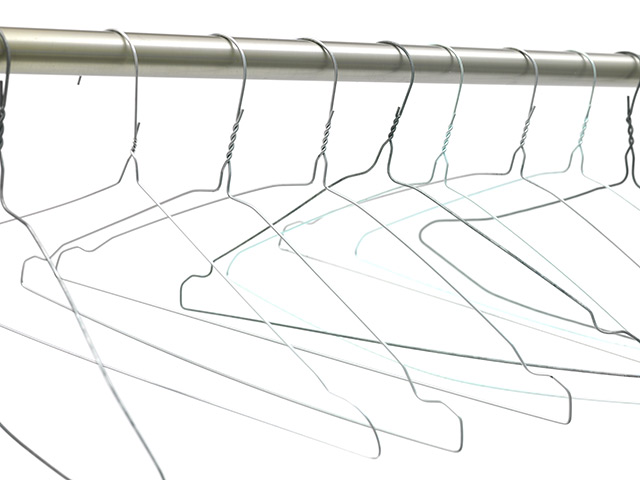Danish media outlets band together to make Big Tech companies pay for news
07/02/2021 / By Nolan Barton

The main media outlets in Denmark announced on Monday, June 28, that they are banding together to collectively negotiate copyright payments for news content used by Big Tech companies such as Google and Facebook.
Reuters reported that 29 Danish media companies will meet on Friday, July 2, for their first general assembly and official launching as a collective bargaining organization in a pioneering move they hope can provide inspiration for other countries in Europe and beyond.
Negotiations with Google and Facebook will begin after the organization’s first meeting followed by conversations with other Big Tech companies.
EU copyright directive establishes related rights
In 2019, a European Union copyright directive established the so-called “related rights” in favor of publishers and news agencies. It gave them the right to be compensated for links to their content by tech giants in order to ensure better compensation for creators of news content.
According to the EU copyright directive, sharing platforms such as Google and Facebook will have to set filters to prevent users from uploading copyrighted material such as news.
“This is not content created for free use. It’s a certain misunderstanding on the part of Californians,” said Anders Crab-Johansen, CEO of Denmark’s oldest continually operating newspaper Berlingske and co-founder of the new organization. He referred to the people of Big Tech companies as Californians because they are mostly based in California.
Krab-Johansen told the Financial Times that the cooperation among Danish media companies meant tech giants would not be able to “divide and conquer us as usual.” He noted that Google and Facebook normally negotiate particular deals with one or a few dominant media companies. They set the standard and the rest has to follow.
“We would rather have a collective bargaining power, which gives us some size,” Krab-Johansen said.
France was the first to incorporate the copyright directive into national law. The country’s news industry negotiated a framework agreement with Google last year but concluded payment terms bilaterally. The approach shrouded the deals in secrecy and divided the media industry. Magazines are seeking to negotiate with Google and Facebook separately as a collective.
In Denmark, nearly all media including the public TV stations have joined together to negotiate collectively. (Related: FACT: Big media and Big Tech stole the 2020 election.)
“The impetus for this initiative came in part from the music industry,” said Stig Orskov, CEO of JP-Politikens Hus, the leading Danish print media group.
Musicians collectively negotiate rights with music streaming platforms such as Spotify.
“Media companies have transferred their mandate to the organization. This is an approach that is well known and proven in Denmark, and we hope that in this way we will get the best results, without necessarily being related to a specific information product,” said Orskov.
“The collective bargaining organization can give the Danish media industry bigger bargaining power. Often the big techs sign non-transparent separate agreements, they use a divide and conquer strategy and what we hope to achieve is a collective agreement that will be beneficial for the whole industry.”
Orskov said he expected negotiations to begin soon as informal contacts with Google have already taken place. “Our main request is for big tech companies to pay a fair share (of the cost) of the news content created by Danish media they use and take advantage of,” said Orskov.
The goal is to achieve greater negotiating power at a time when press groups deplore some non-transparent agreements among GAFA (Google, Apple, Facebook, Amazon) and some media, Orskov added.
Big Tech tried to fight creation of related rights in Europe
Google and Facebook fought the creation of related rights in Europe, saying the use of snippets of news stories on search results and news pages helped send readers to the sites of media outlets.
News media, on the other hand, said Google and Facebook had sucked most ads away from them, and that they received no compensation for the use of the snippets although tech platforms generated advertising revenue by using them.
Google told AFP it would respect the decision of Danish media to negotiate collectively. Interestingly, AFP is also in negotiation with Google over related rights.
“We will respect the way that Danish publishers choose to negotiate, and have already offered to start discussions with them, with the goal of reaching fair and reasonable agreements in line with the law,” Google said.
On the other hand, Facebook has sought to minimize its liability by stripping back the content posted when users share hyperlinks. In countries applying the EU copyright law, publishers’ permission is required for anything more than the basic link to appear on the platform.
Big Tech companies like Google and Facebook are allocating hundreds of millions a year to pay for news around the world. But the funding is negotiated with publishers on a one-to-one basis and tied to specific news products so Big Tech companies can avoid systematic copyright charges for using snippets of content on their platforms. (Related: Tech giants, mainstream media have all adopted a “code of censorship” to eliminate information they don’t want the public to see.)
Follow TechGiants.news for more news and information related to Big Tech companies.
Sources include:
Tagged Under: Amazon, Apple, Big Tech, collective bargaining, copyright directive, copyright law, copyrighted material, Facebook, GAFA, Google, media industry, national law, news content, news industry, related rights, tech giants, Twitter
RECENT NEWS & ARTICLES
COPYRIGHT © 2018 TECHGIANTS.NEWS
All content posted on this site is protected under Free Speech. TechGiants.news is not responsible for content written by contributing authors. The information on this site is provided for educational and entertainment purposes only. It is not intended as a substitute for professional advice of any kind. TechGiants.news assumes no responsibility for the use or misuse of this material. All trademarks, registered trademarks and service marks mentioned on this site are the property of their respective owners.





















